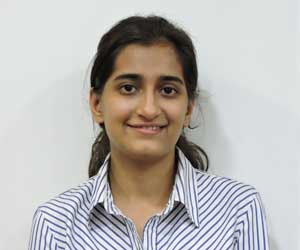The Indian Council for Cultural Relations (ICCR) organized the visit of the third batch of Gen-Next Democracy Network Programme. The delegates visited the Vivekananda International Foundation on July 21, 2022 for a roundtable discussion/lecture on different aspects and dimensions of Indian democracy. The eminent panel consisted of Prof Sujit Dutta, Distinguished Fellow & Editor – National Security, VIF; Professor Dr. (Ms.) Shashiprabha Kumar, Distinguished Fellow, VIF and Lt Gen RK Sawhney, Distinguished Fellow, VIF. The focus of the discussion was to give a glimpse of Indian democracy through the lens of its culture, economy and army. The Panel discussion began with the opening remarks by Director, VIF, Dr. Arvind Gupta. He began his opening remarks by mentioning that India is in the 75th year of independence and since its independence India had made significant progress as a democracy and as a highly diverse country. He explained to the audience that how after a relatively peaceful struggle for freedom India was born. India was vivisected on the basis of the two-nation theory and was born out of tremendous pain. However, over the years India has made significant progress in all almost all aspects ranging from Science and Technology, Pharma and Infrastructure. In fact India has been the first responder in providing vaccines to the various countries. Dr Gupta highlighted that India’s major strength is rooted in its five thousand old civilizational history.
Professor Kumar initiated the discussion by presenting the foundational elements of the Indian culture, which are universal in character and could provide a strong and solid base for a new world order. Professor Kumar put forth the distinguishing features of Indian culture and emphasized on the fact that Indian culture is oldest and universal in nature, not confined to spatio-temporal conditions. Vedas are the fountainhead of Indian culture and Vedic ideas and its vitality has kept the Indian culture alive. It is because of the strong cultural foundation that India has survived the ravages of time. Professor Kumar pointed out the essential feature of Indian culture is the continuity of this culture from the Rigveda to the current modern time.
Dr Kumar further explained that despite India having manifold diversity in language, religion and caste there is an underlying unity, which keeps the country strong. She stated another important feature of Indian culture that is the equality among human beings and how all human beings are progeny of divine. In fact long before the idea of globalization India believed in Vasudhaiva Kutumbakam, which means, “The world is one family”. Dr Kumar further stated that Indian cultures gives immense importance to equality amongst genders and there is an essential coordination amongst men and women. Dr Kumar concluded her presentation by highlighting that Indian culture is also duty centric and there is a genuine concern for environment.
Prof Sujit Dutta began his presentation by stating that India’s success of sustaining a democracy for last 75 years is a significant phenomenon. He pointed out that though the British left India with an extremely low economic growth, India sustained its democratic ethos unlike Pakistan, which could not sustain a democracy. Prof Dutta elaborated that how India evolved as a modern federal democracy wherein constitution of India gives equal fundamental rights and duties to its people. On the question of religion major reforms are underway such as Uniform Civil Code. He highlighted an important feature of the outcome of democratization of India that how that nature of caste and class orientation of those in power has evolved over time as rural landed gentry has attained a greater salience. The empowerment of lower castes is a major achievement of India as a democracy. Prof Dutta gave a detailed picture of the India’s growth as an economy. Till 1991, India’s economy was very inward looking. In 1991 it opened its economy which led to the second phase of the country’s history in economic terms where India started to gradually increase its engagement with the world opening up to foreign direct investment. India has become one of the fastest growing economies. In fact India is on course to become USD 5 trillion economy by FY26.
Gen Sawhney delved on the importance of army in a democracy and more so on how there has been no coups since independence. He pointed out that Indian army is one of the most professional and competent armies of the world. Gen Sahwney emphasized on Indian army being apolitical and extremely diverse. He stated that Indian Army continues to play a lead role in United Nations Peacekeeping. The Panel discussion ended with a stimulating question and answer session.







Post new comment